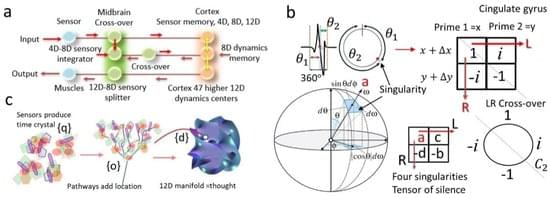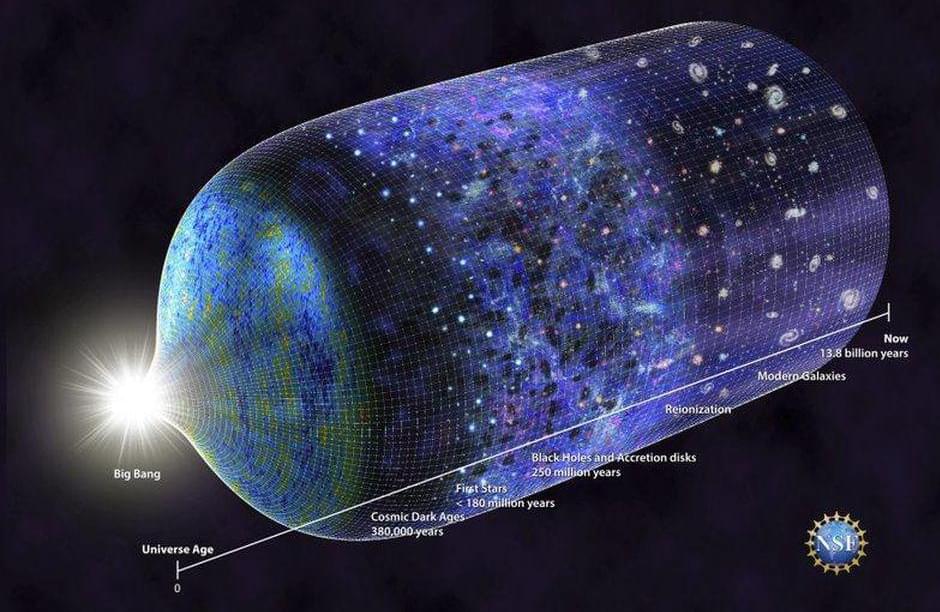So there is no practical application of Time Crystal for human cells?
Time crystal was conceived in the 1970s as an autonomous engine made of only clocks to explain the life-like features of a virus. Later, time crystal was extended to living cells like neurons. The brain controls most biological clocks that regenerate the living cells continuously. Most cognitive tasks and learning in the brain run by periodic clock-like oscillations. Can we integrate all cognitive tasks in terms of running clocks of the hardware? Since the existing concept of time crystal has only one clock with a singularity point, we generalize the basic idea of time crystal so that we could bond many clocks in a 3D architecture. Harvesting inside phase singularity is the key. Since clocks reset continuously in the brain–body system, during reset, other clocks take over. So, we insert clock architecture inside singularity resembling brain components bottom-up and top-down.





